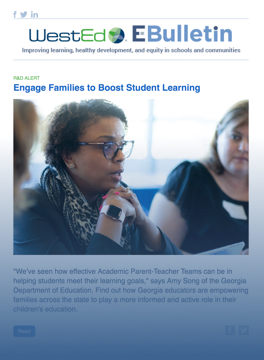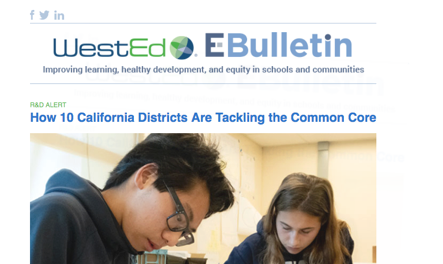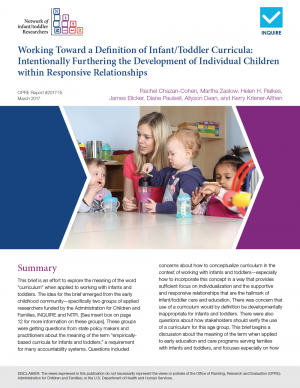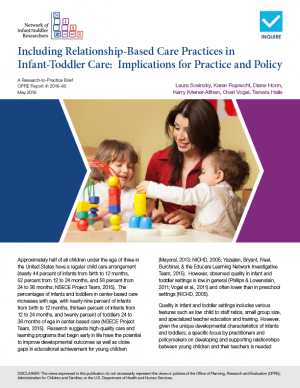Working Toward a Definition of Infant/Toddler Curricula: Intentionally Furthering the Development of Individual Children within Responsive Relationships
Description
As part of the movement to develop and improve services for infants and toddlers, more state, federal, and professional accountability systems are requesting that infant/toddler programs demonstrate the use of an empirically based curriculum.
However, uncertainty exists about how this impacts infants and toddlers. What does a curriculum for infants and toddlers look like? What elements are important? How can educators assess whether a curriculum is being used effectively?
This brief, co-authored by WestEd’s Kerry Kriener-Althen, aims to provide background and guidance to policymakers and practitioners in the context of this emphasis on curricula for programs serving infants and toddlers.
The brief:
- Looks to existing definitions of curricula for infants and toddlers to identify key elements that should be considered
- Examines how educators might assess curriculum implementation
- Reviews definitions and approaches from many sources. and provides relevant and representative information in the appendix
This information should be useful to those providing group care and education services in home-based and center-based settings.
Resource Details
Product Information
Copyright: 2017Format: PDF
Pages: 31
Publisher: U.S. Department of Education, Office of Planning, Research & Evaluation
Stay Connected
Subscribe to the E-Bulletin and receive regular updates on research, free resources, solutions, and job postings from WestEd.
Your download will be available after you subscribe, or choose no thanks.






